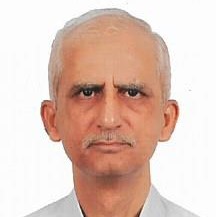The current global economic crisis has its roots in the mindset and lifestyle of people in general. What is the meaning of development and progress that is understood by an average couple stepping into life together? To earn more and more so that there is unhindered money supply; to be able to buy whatever the family needs – this can start from basics like living in a comfortable house; to be able to buy all the gadgets that makes life easier. This is the model accepted at the family, social and national levels thus forming the basis of the prevailing economic system at the global level.
It is assumed that such a materially oriented life would bring wellness (or happiness) - the basic necessity in life. Wellness has thus become dependent on externals. In reality the feeling of wellness comes from within oneself. One feels well when there is fulfillment of the 'inner being'. However wellness is mistakenly thought to arise from external objects. Willingly or unwillingly, everyone is drawn into a similar pattern of thinking. The economy of a nation is, as a result, cast in this mould. The global economic mechanism has been structured so that such a development model is sustained. It is presumed that for healthy economics, the demand for goods (or services) and the growth rate of GDP (Gross Domestic Product) need to be kept up.
Apart from providing wellness dependent on externals, such a materially oriented model has proved to be socially divisive. Since the emphasis is on the GDP, the less productive sectors are sidelined. With no prospect for inclusive growth and prosperity, people are forced to migrate towards cities where economic activity is concentrated. While rural areas remain impoverished, urban areas face the problem of overcrowding and pollution. It is easier for the rich to become richer and the rich-poor divide gets accentuated. Social tensions worsen.
To sustain this kind of materialistic development, there is over-exploitation of natural resources with ecological factors getting sidelined. Environmental degradation with build up of green house gases leading on to imminent disastrous climate change is a direct result of such a development model.
Such a progress and development based on a false notion of wellness cannot sustain itself forever. The fact is that wellness is possible without a materialistic outlook. The inevitable has happened. The financial bubble built on a mirage of externals without a true basis has burst and global economy is entering into a recession. There is a fall in demand for goods and business enterprises are forced to close shop. With large-scale loss of jobs, rescuing the economy with bailout plans has become a political priority. While generating jobs is necessary, it would be prudent to consider whether what is sought to be bailed out, is indeed the best option available. Should a failed economic system be given life once again?
Even if individuals decide that such a materialistic development model has failed to provide wellness and are prepared to embrace a wiser model, it would be difficult to put it in practice since the national and global economies have to be restructured. Continuing to use the GDP as the chief index of economic development is misleading. It does not reflect the actual fulfillment that people get out of life. While society may need one thing, the government will be doing another thing based on the GDP, which is a deciding factor in framing policies and programs. A new economic index that is centered on wellness rather than material growth needs to be adopted by governments to reframe their policies and programs. GNW or GNH (Gross National Wellness/Happiness) is an index that would fit this requirement.
GNH has been studied systematically by Med Yones, who speaks of seven kinds of wellness: Economic, Environmental, Physical, Mental, Workplace, Social and Political wellness. In his own words: "While the proposed new GNW or GNH metric may not be all-inclusive or provide a perfect measure, the consideration of the above parameters is a good start when creating a new metric for the measurement of socioeconomic development and policy management". For example when the govt. launches a scheme to generate employment opportunities, its real worth can be assessed in terms of its impact on the seven kinds of wellness mentioned above as opposed to the value merely in terms of its contribution to the GDP.
Compared to an indicator that measures only the economic aspect of wellness, an indicator that takes a comprehensive view of wellness is superior and closer to reality. It is pertinent to remind oneself that 'economy' (from Greek oikonomos = household manager) is defined as the management of concerns and resources of a state (or business or household). Here 'concerns' will include the needs of the people, which may be apart from 'material needs', spiritual needs like freedom, opportunity and fulfillment. While managing the economy of a family, the father and mother would be concerned with the education, health and overall development of their children and not merely in providing for their material needs.
Thus it would be in the fitness of things and conducive to Human Union and Global Harmony that GNH or GNW, a new comprehensive index for socioeconomic growth and development is adopted at the national and global levels. The current economic crisis provides an opportunity for making this transition. In fact this may be the only viable way out to rescue the world from a worsening crisis that is born out of a system that is built on false premises.





